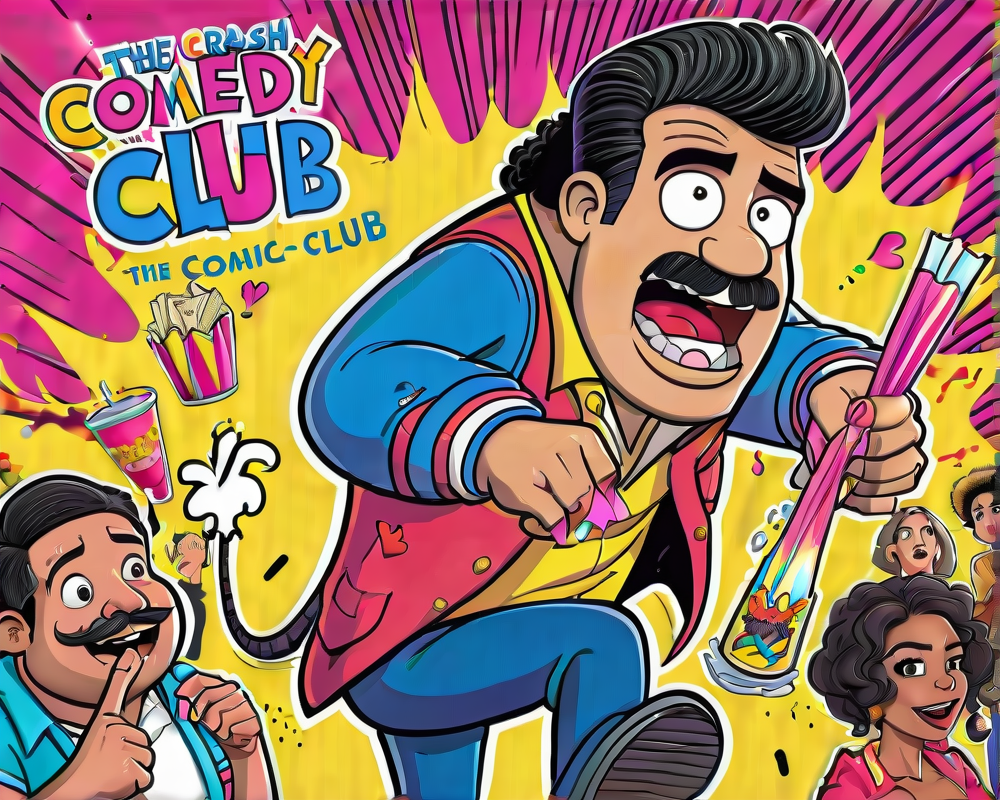When Laughter Meets NFTs
In a country where laughter meets despair, Venezuelans have found their solace in humor, even venturing into the bizarre world of NFTs. Enter the Comedy Monsters Club (CMC), a project that boldly claimed to be the first comedy club utilizing NFT collectibles as membership. Launched in November 2021, this venture promised many laughs and even brighter financial prospects—at least until it didn’t.
The Rise of CMC: Comedy Meets Crypto
The project, spearheaded by Roberto Cardoso, or as the stage knew him—Bobby Comedia—alongside his brothers José David and David Roa, generated quite the buzz among NFT enthusiasts. They made headlines, graced podcasts, and successfully snagged the attention of many would-be investors.
- José David, a self-proclaimed “NFT expert,” shared tales of his early investments in the Bored Ape Yacht Club, claiming profits of over $300,000. Understandably, this made many a listener’s wallet twitch.
- Combined with the humor of Venezuelan comedians, the allure proved irresistible—at least at first.
Expectations vs. Reality: A Comedy of Errors
However, the initial excitement soon morphed into a puddle of confusion for many investors. After launching with a limited offering of 10,100 NFTs priced between $400 and $500, the big question remained: how would these NFTs grow in value?
The roadmap consisted of ambitious dreams: from podcasts to exclusive comedy festivals, each aspiration seemingly more extravagant than the last. But as weeks turned into months, it became clear that reality was far more lackluster. Events were not exclusive, and promised raffles turned out to be more of a mystery than an opportunity.
The Aftermath: From Viral to Viral Outcry
Fast forward to 2022, and the only laughter echoing from the CMC halls was that of disbelief. Community members started raising concerns, only to find themselves blocked from discussions. The founders, including David and José David, left virtual arenas faster than a one-liner comic on stage.
Cardoso claimed an agreement with his co-founders that allowed him to steer the project solo, but by then, the community’s trust was eroding faster than a punchline at a failed open mic night. Initial investments appeared to vanish into thin air, leading many to suspect a soft rug pull—a term that sounds like a punchline but is no laughing matter to investors.
Legal Loopholes and Financial Fallout
As the web of accountability continued to unravel, it became evident that the CMC lacked a community wallet, a vital piece often anticipated in NFT projects to manage shared funds.
With the funds being divided into three wallets controlled by the founders, holders were left in the dark. Londoño, a lawyer and part of another NFT project, lamented the lack of contractual clarity. “Neither side established explicit agreements, leading to confusion and ultimately disappointment,” she lamented.
Lessons Learned: Humor Isn’t Always Profitable
In the end, CMC remains a cautionary tale in the NFT space. Cardoso vows to continue operations, presumably to redeem the tarnished reputation of the club, recognizing, albeit late, that transparent communication and firm commitments are vital.
- One thing’s certain: while humor can lighten burdens, it doesn’t replace the need for solid business practices.
- The actual take-home message? Even if you’re selling laughs, a few solid rules won’t hurt.




